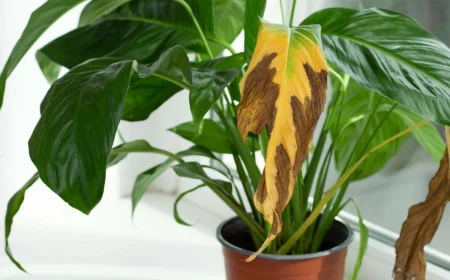DIY Raccoon Repellent: 7 Natural Solutions You Can Make At Home
Raccoons are the masked bandits of the night. While they may be cute from a distance, they ain’t as adorable when they decide to invade your property. Then they become quite the nuisance. Tipping over trash cans, rifling through gardens, and causing general mayhem. These critters can leave homeowners feeling at their wit’s end. However, when it comes to keeping raccoons at bay, there’s no need to resort to harsh chemicals or inhumane methods. Nature provides us with an array of effective repellents that can be easily crafted at home. Today, we’ll explore some effective natural raccoon repellent solutions that are not only safe for you and your environment but also gentle on our furry neighbors.
Raccoons are the masked bandits of the night
In this article
What Kind of Animal Is a Raccoon?
A raccoon is a medium-sized mammal that is native to North America. These little creatures are instantly recognizable by their black “mask” and bushy, ringed tails. Omnivorous, intelligent, and adaptable, raccoons thrive in diverse environments. This includes urban areas. They use their dexterous front paws to open containers and grasp food, feeding on fruits, nuts, insects, and small animals. Raccoons are famous for rummaging through trash for food, which is also why they are often in conflict with humans. These mammals are primarily nocturnal, curious, and can be solitary or social. They have adapted well to urban living, exploiting resources and navigating complex landscapes. Their adaptability and intelligence make them a fascinating example of urban wildlife.
A raccoon is a medium-sized mammal that is native to North America
DIY Raccoon Repellent
As our awareness of environmental impact continues to expand, so does our determination to find eco-friendly solutions to everyday household challenges. When it comes to addressing these pesky creatures, homeowners are increasingly embracing natural and homemade raccoon repellent remedies. These eco-conscious solutions not only mitigate harm to wildlife, but also align with a healthier and more sustainable way of life. Join us on this journey as we explore some environmentally friendly raccoon repellents that you can easily create within the comfort of your own home.
Homeowners are embracing natural and homemade raccoon repellent remedies
Peppermint oil spray
For an aromatic and potent raccoon repellent, harness the power of peppermint oil. Raccoons can’t stand the robust scent of peppermint, making it an ideal choice for keeping them away from your property. Crafting your DIY peppermint oil spray is a breeze:
Ingredients:
- 1 part peppermint oil
- 3 parts water
Instructions:
- In a spray bottle, combine 1 part peppermint oil with 3 parts water.
- Shake the mixture thoroughly to ensure it’s well-mixed.
- Spray the peppermint oil solution generously around your property’s perimeter and any potential raccoon entry points.
- Reapply the spray after rain to maintain its effectiveness and keep those curious raccoons at bay.
Raccoons can’t stand the robust scent of peppermint
Cayenne pepper repellent
Raccoons have an aversion to spicy foods, and cayenne pepper is a natural ingredient that can deter them effectively. Here’s how to concoct your homemade cayenne pepper spray:
Ingredients:
- 1-2 tablespoons of cayenne pepper powder
- 1 quart of water
- A few drops of dish soap
Instructions:
- In a spray bottle, combine 1-2 tablespoons of cayenne pepper powder with 1 quart of water.
- Add a few drops of dish soap to help the mixture adhere to surfaces.
- Shake the bottle thoroughly to blend the ingredients.
- Apply the cayenne pepper spray to areas where raccoons are known to frequent or enter your property.
- Remember to reapply the spray as needed to ensure its ongoing effectiveness in keeping raccoons away.
Raccoons have an aversion to spicy foods
Ammonia soaked rags
Ammonia’s pungent odor is a reliable raccoon repellent. To create an effective deterrent, follow these simple steps:
Ingredients:
- Old rags or cloth strips
- Ammonia
Instructions:
- Soak old rags or cloth strips in ammonia until they are thoroughly saturated.
- Place these ammonia-soaked rags strategically near your trash cans, throughout your garden, or close to potential raccoon entry points.
- For the best results, replace the ammonia-soaked rags regularly to ensure the scent remains potent and discouraging to raccoons.
Ammonia’s pungent odor is a reliable raccoon repellent
Vinegar solution
Harness the power of vinegar’s potent odor to create an effective raccoon deterrent. Craft your DIY vinegar solution with in a couple of easy steps:
Ingredients:
- Equal parts water and white vinegar
Instructions:
- In a spray bottle, combine equal parts water and white vinegar.
- Thoroughly mix the solution to ensure it’s well-blended.
- Spray the vinegar solution generously around your property, paying special attention to areas frequented by raccoons.
- Reapply the solution as needed to maintain its effectiveness in deterring raccoons from your space.
Harness the power of vinegar
Motion-activated lights
Raccoons, being nocturnal creatures, have a strong aversion to bright lights. Harness this knowledge by installing motion-activated lights strategically around your property. These lights serve a dual purpose: they startle raccoons and discourage their presence while providing added security for your home. To implement this solution, you can easily find affordable options at your local hardware store. By creating an environment that is less welcoming to raccoons during the night, you’re taking a proactive step in deterring these critters from your property.
These lights startle raccoons and discourage their presence
Noise machine
Effectively disrupting raccoon activities involves the use of noise machines specially designed to deter wildlife. Two effective options are available. The first is motion-activated ultrasonic devices. They emit high-pitched sounds that are irritating to raccoons, compelling them to seek quieter and more peaceful surroundings. The ultrasonic frequencies are bothersome to raccoons, making them uncomfortable and encouraging them to vacate the area. Another approach is to set up a radio near raccoon-prone areas and tune it to a talk radio station. The constant chatter and human voices can create a disturbance that discourages raccoons from lingering in the vicinity. Raccoons prefer quiet environments, so the presence of human voices can deter them effectively. These noise machines provide humane and eco-friendly solutions to keep raccoons at bay and maintain a peaceful coexistence with wildlife.
The constant chatter discourages raccoons from coming
Changing their habitat
Simple yet strategic adjustments to your property can render it less appealing to raccoons. For starters, you can secure your garbage cans. Prevent raccoons from rummaging through your trash by securing garbage cans with bungee cords or locks. This small change can make a big difference in discouraging their scavenging habits. You should also bring all pet food inside. This measure reduces the allure of your property as a food source for these nocturnal visitors. Finally, trim overhanging tree branches. Raccoons are skilled climbers, and overhanging tree branches can provide them with access to your roof and potentially your home. To thwart their efforts, trim overhanging branches to eliminate this potential entry point.
Simple yet strategic adjustments to your property can render it less appealing to raccoons
In your quest for raccoon repellent solutions, remember that we share our environment with these creatures. While it’s essential to protect your property, it’s equally vital to coexist peacefully with wildlife. By choosing these natural and humane repellents, you can keep raccoons at bay without harming them or the environment. So, go ahead and try these DIY remedies, and enjoy a pest-free home that’s in harmony with nature.
Will you be trying out some of these raccoon repellent solutions?





















